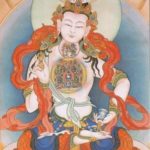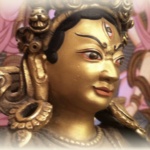Spiritual intelligence is one of our greatest assets. We live out our entire life based on our ideas of who we are, what life is, what matters, what does not. Many of these ideas come from conditioned scripts, cultural baggage and un-inspected assumptions. Relationships are made or broken based on the concepts in our mind. Wars are started or ended based on ideas in minds. The quality of our mind and the quality of our relationship with our mind defines the quality of our lives.
Even more than the concepts we rule our lives by, our minds are also filled with an overwhelming invisible, intangible power millions of times more powerful than any other force in our lives – our subconscious mind. Buddhist philosophy proposed the notion of the subconscious mind two thousand years before western european psychologists were keen on the idea.
This is why spiritual intelligence is one of our greatest assets. Growth is limited unless we can think deeply, to consider profound philosophical questions and question our own minds. It is not enough to hear inspiring spiritual insights that sound good or seem beautiful. To much inspiration without clarity of insight only leads to the realm of the gods, a puffed up fantasy state where we forget to see through our own self-deception. To be a growing, thriving, awakening human being requires both inspiration and intellectual rigor. We need to be adept at questioning our own beliefs, identifying our own motives and taking responsibility for our own minds. Buddhist philosophy is an exquisite resource for this work. I recommend every one on earth who possible can to learn as much Buddhist philosophy as possible. It is a way to polish, clean, challenge, expand and yes – blow your mind!
A great place to begin is to question everything. In Buddhism, Madhyamika philosophy is a method for deconstructing our rigid ideas so that we can begin to see how things are not always what they seem. Of course there is the Buddhist saying quoted by Thinley Norbu Rinpoche in his book “Magic Dance,” Things are not what they seem, nor are they otherwise.” This perplexing statement expresses the flavor of Madhyamika. It ultimately points out the limiting nature of concepts. It essentially leads to the insight that reality is “empty” of the concepts we put on it. Where does that leave us? Besides concepts – we have direct experience – that is the heart of the Buddhist path.
This video is an overview of the major issues surrounding the Buddhist philosophical method known as Madhyamika, the teaching that everything is empty.








Great video. I would not have it possible to disentangle emptiness and nothingness so well so quickly. And distinguishing method from “truth” in same 2 minutes. Wow.
This is an AWESOME teaching. Thank you Rinpoche. I love the interplay of the ordinary life, such going for a walk, and passing cars, with the mind blowing message of Madhayamika. It struck me as a profound testimony of emptiness which is not nothingness.